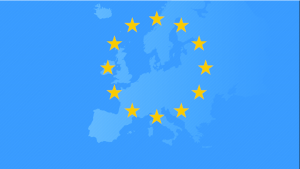Meaningful Civil Participation and an Independent Civil Society – Essential Elements of Our Common European Future

Anna Rurka
 One can be certain that the final face of Europe will depend on our collective effort, the strength of our commitmentOGP commitments are promises for reform co-created by governments and civil society and submitted as part of an action plan. Commitments typically include a description of the problem, concrete action... to defend liberal democracy, and a pluralistic and diverse society that defines our relationship with one other.
One can be certain that the final face of Europe will depend on our collective effort, the strength of our commitmentOGP commitments are promises for reform co-created by governments and civil society and submitted as part of an action plan. Commitments typically include a description of the problem, concrete action... to defend liberal democracy, and a pluralistic and diverse society that defines our relationship with one other.
Europe is our joint special project based on liberal values, human rightsAn essential part of open government includes protecting the sacred freedoms and rights of all citizens, including the most vulnerable groups, and holding those who violate human rights accountable. T..., and fundamental freedoms.
Currently, in some contexts, the rise of populist nationalism, ideologically motivated discrimination, and exclusionary narratives expressed in public spaces destabilise our vivre ensemble, or our ability to live together, and our relationship with others at all levels of society.
In democratic states, civil society organisations play a key role in fostering social cohesion by acting as a bridge between different segments of the population. Moreover, civil society organisations collectively represent a political force by acting as agents of change. Today, a lot of them are under attack for that role. Stifling their voice has become a subtle exercise through the (ab)use of legal regulations, such as those of the Schengen area or the overinterpretation of international recommendations or standards like the guidelines of the Venice Commission on Fundamental Rights, or the joint OSCE/ODIHR and Venice Commission Guidelines on Freedom of Association.
Massive protests, such as those of the yellow vests in France, highlight the disconnect between policymakers and vulnerable citizens. From a human rights perspective, social rights strengthen peace and democracy. A sharp fall in the trust placed by individuals in political systems of representative democracy primarily demonstrates that the social contract between those who are governed and those in power must be strengthened, protected, or, in some cases, even renegotiated. The solution should include greater accessibility to public institutions and stronger civic participation, as proposed in the Council of Europe Guidelines for civil participation in political decision-making. A mutually beneficial partnership with service-oriented Civil Society Organisations (CSOs) and sustainable civil society funding mechanisms are important factors in the success of the multilateral framework.
We should bear in mind that without guarantees for civil society independence at the country level, there is no guarantee that independent CSOs will participate at the international level. Civil society is self-governing. As such, we must believe in its self-generating capacity. However, in order to exist and further develop, civil society needs to see that its actions bring about change.
Solidarity within Europe cannot be achieved without civil society. Together with CSOs, public institutions should strengthen their responsiveness and make their expertise both visible and transferrable. Connections with citizens and grassroots organisations cannot be made via technological tools alone – they should be made by the people and for the people. Technologies can help us better understand the impact of our actions, but they cannot replace our empathy or sensitivity. We should not be afraid of people whose nationality, religion, and belief systems are different from our own. For that to happen, we need to talk to one another and not simply go our separate ways, following our own interests.
Only together can individuals and CSOs improve democracy in a more efficient way. Every individual is fully responsible for exercising, respecting, and observing human rights on a daily basis. However, leaders have a specific duty in democratic debate to shed light on the challenges facing communities and groups in a manner that puts forward their positions without necessarily seeking to impose them upon the whole of society.
To make democratic institutions more accessible and transparent, we should not wait until they open themselves up to us. We must question them, oversee them, and exercise our rightful democratic control.
It is only by listening to citizens and considering minority interests that the public sector can adopt citizen-oriented policies and provide answers to their respective needs. In order to increase public trust and make accountable policies, this voice and contribution through direct citizen and civil society participation should be taken into account during all stages of the decision-making process, including the design of policy agendas. Improving access to information should be prioritised at the central and local levels where citizen associations play an increasingly important role in developing and providing public services.
There is still time to act before Europe arrives at the point of no return. Is its ability to reinvigorate itself not one of the crucial characteristics of democracy? One can be certain that the final face of Europe will depend on our collective effort, the strength of our commitment to defend liberal democracy, and a pluralistic and diverse society that defines our relationship with one other. The 2019 European electionsImproving transparency in elections and maintaining the independence of electoral commissions is vital for promoting trust in the electoral system, preventing electoral fraud, and upholding the democr... More present a crucial moment and a chance for the Europe that we want to defend.
No comments yet
Related Content

Do We Trust Democracy? A Future Agenda for Europe
The European election of 2019 asked voters to choose between more or less Europe, between inclusion and diversity or exclusion and nationalism, and between societies that are more open or…

Leave a Reply